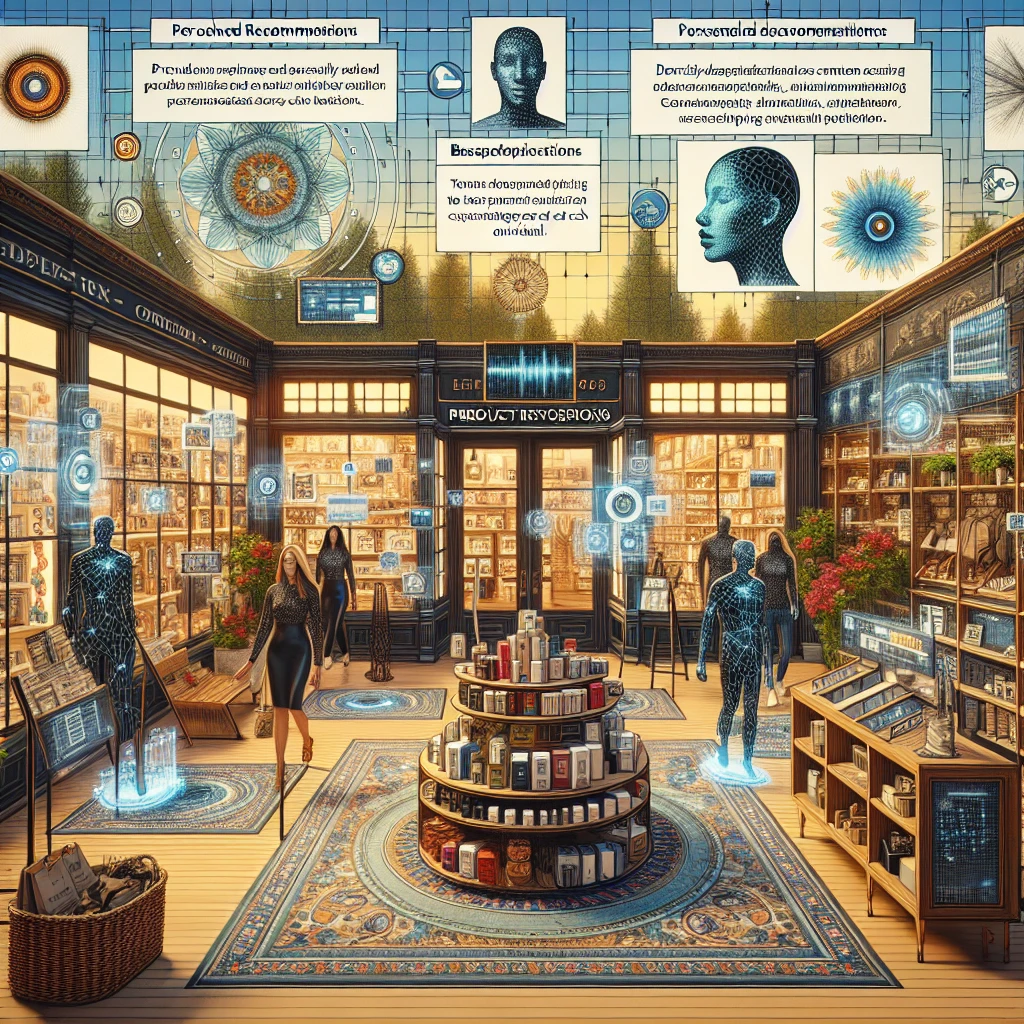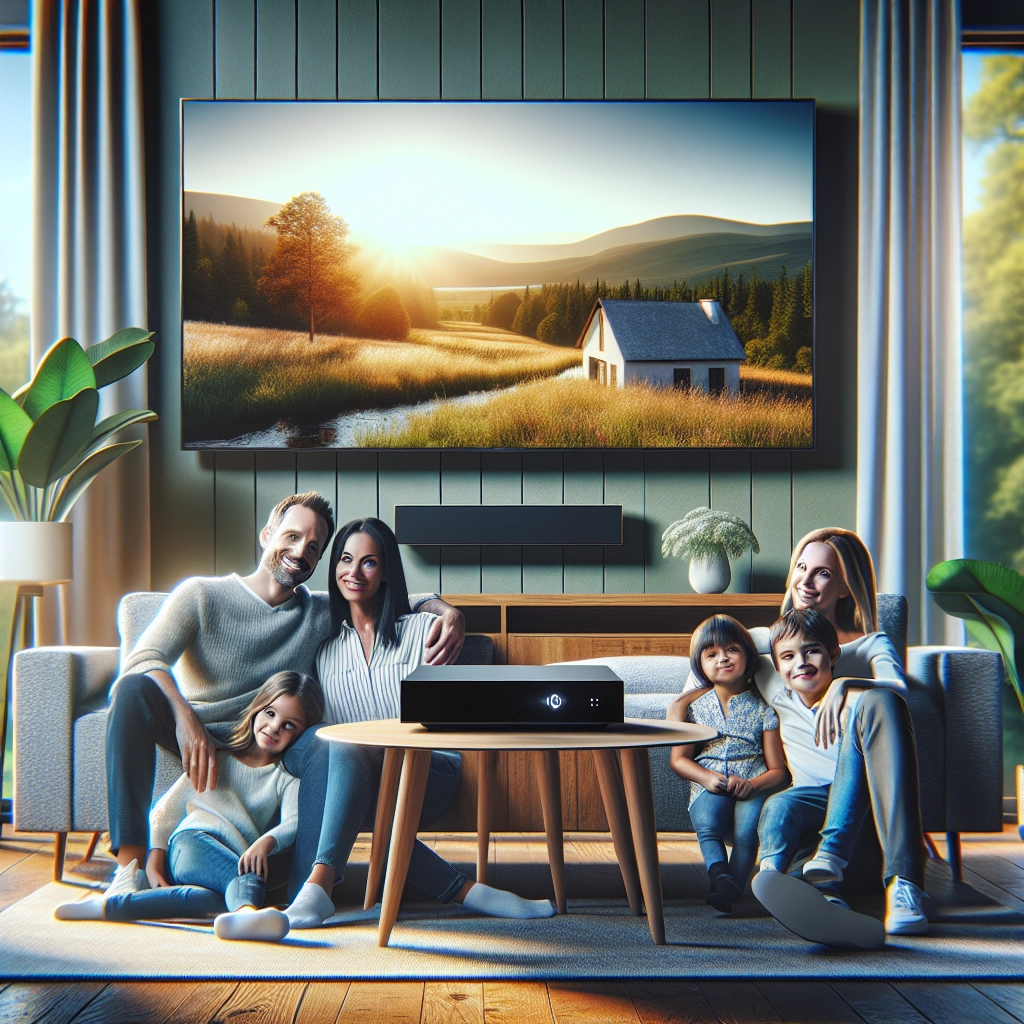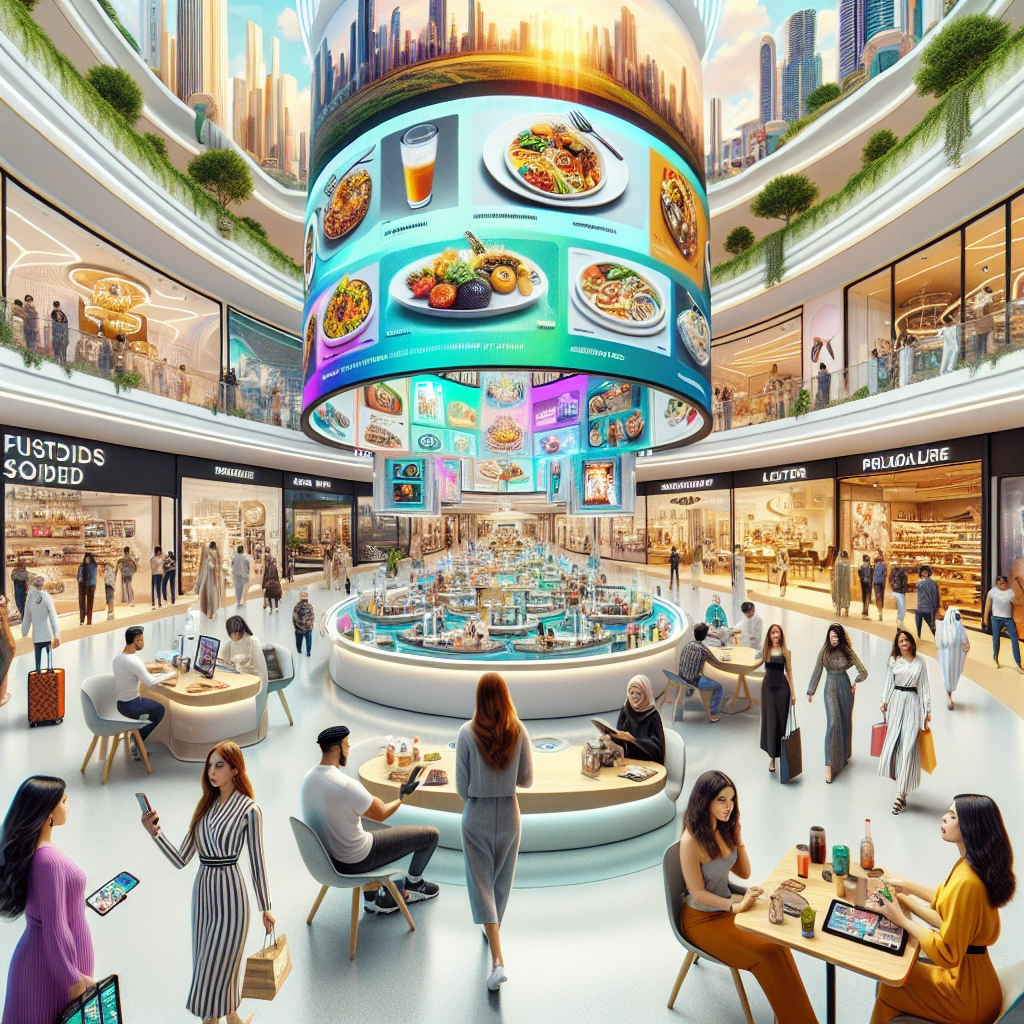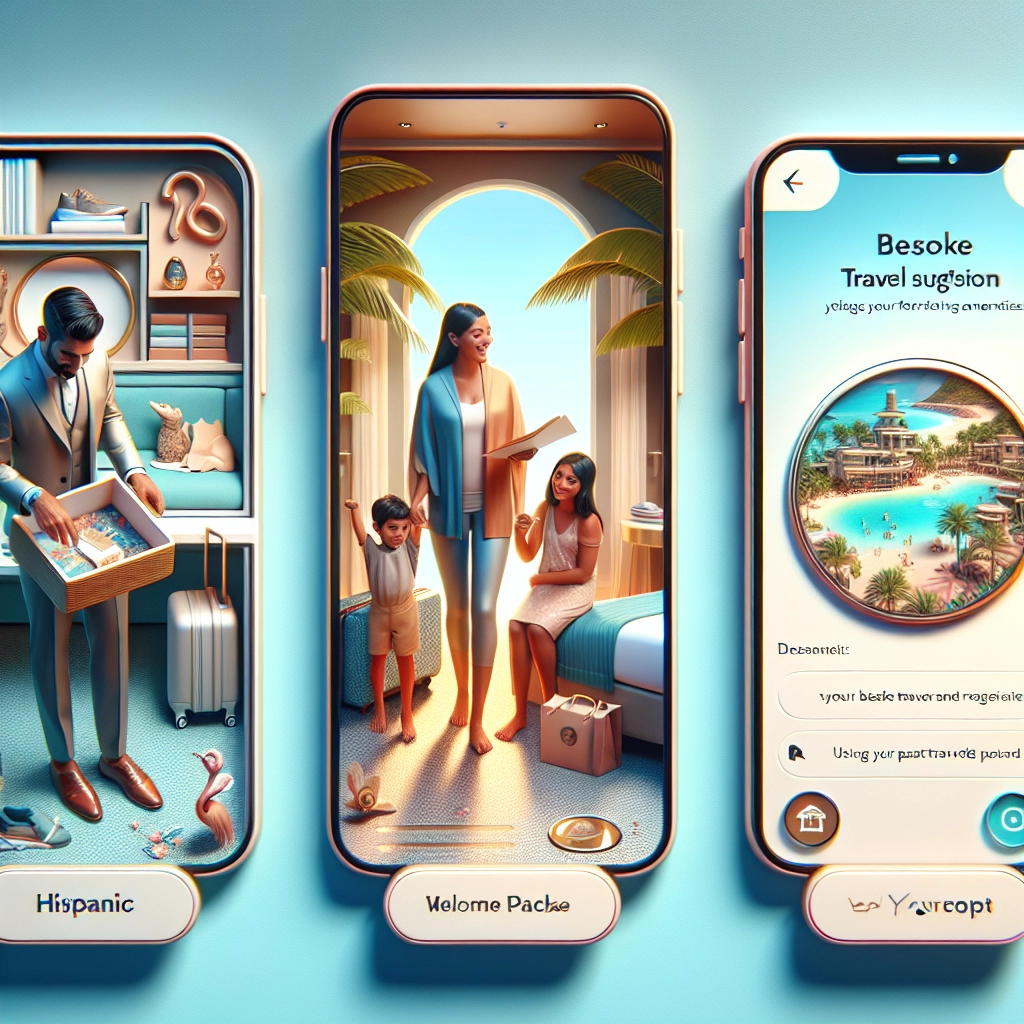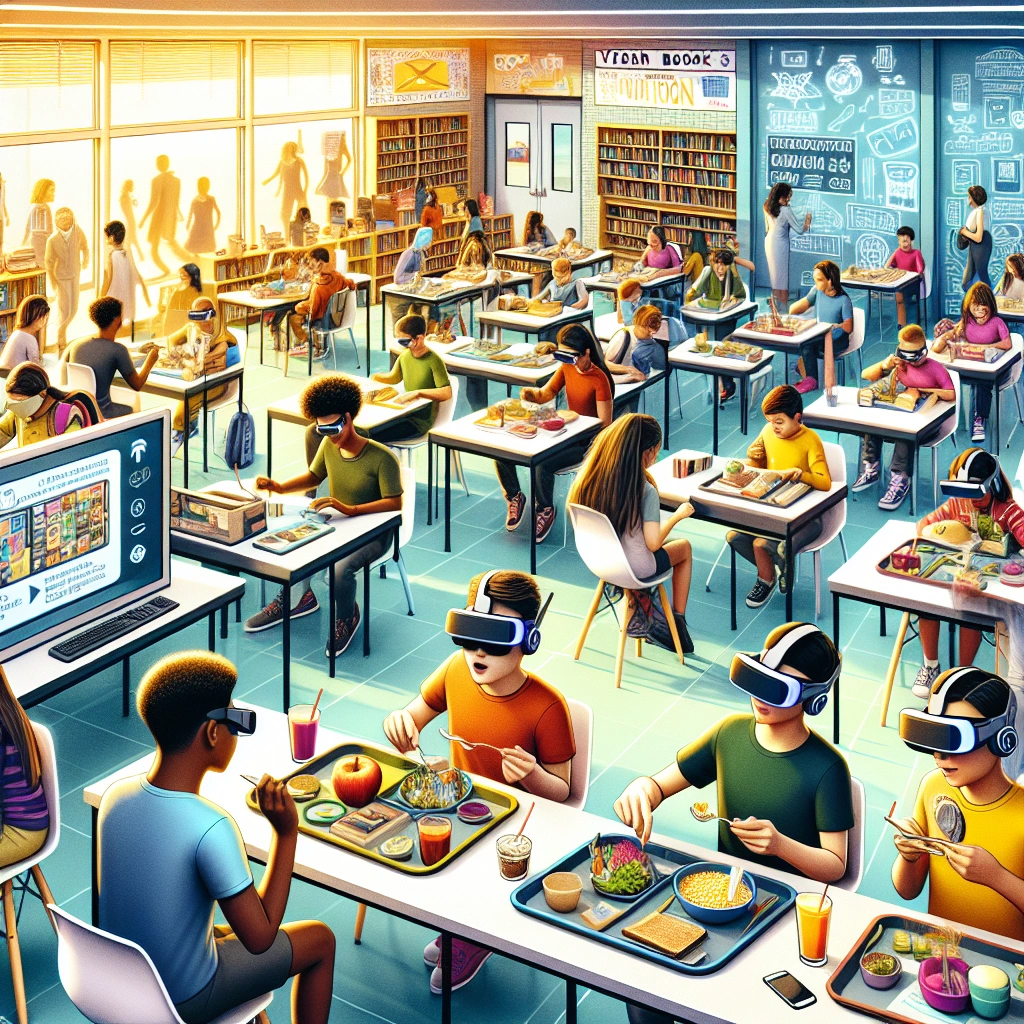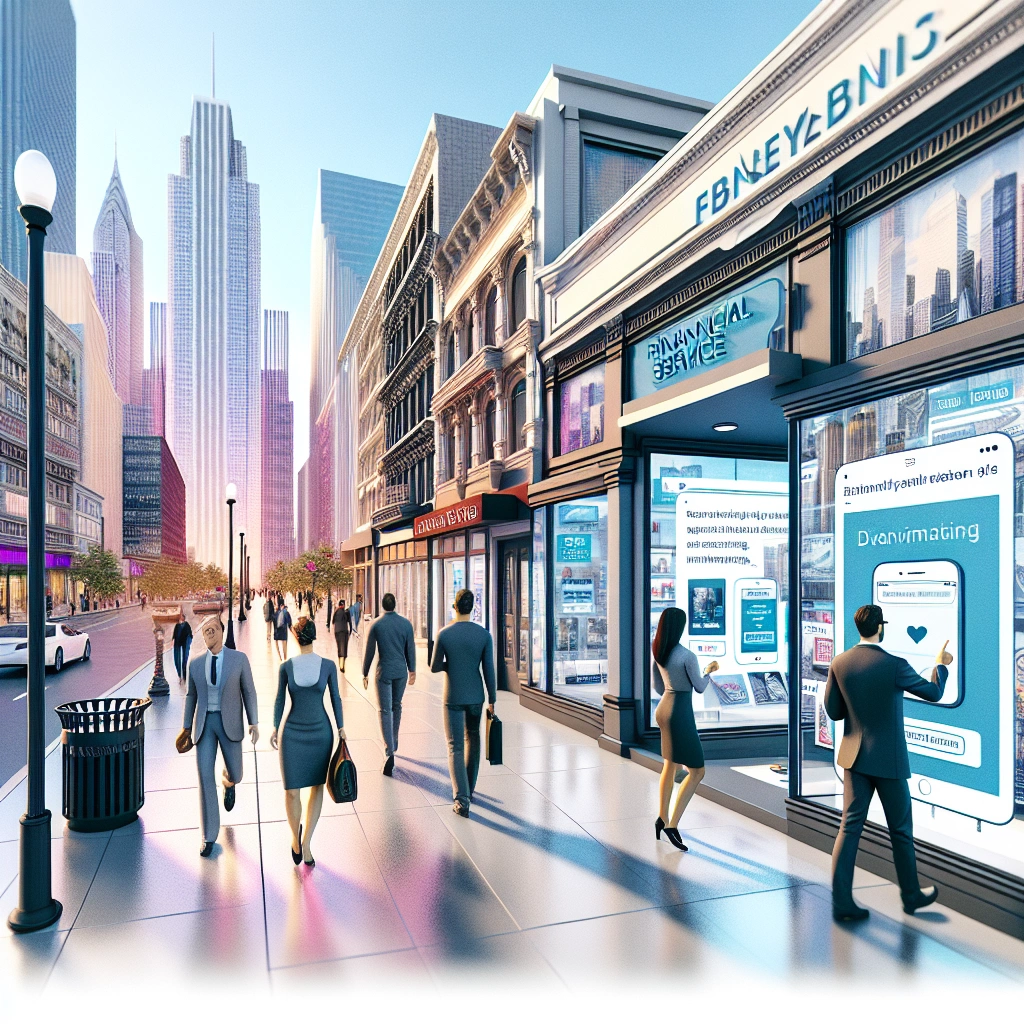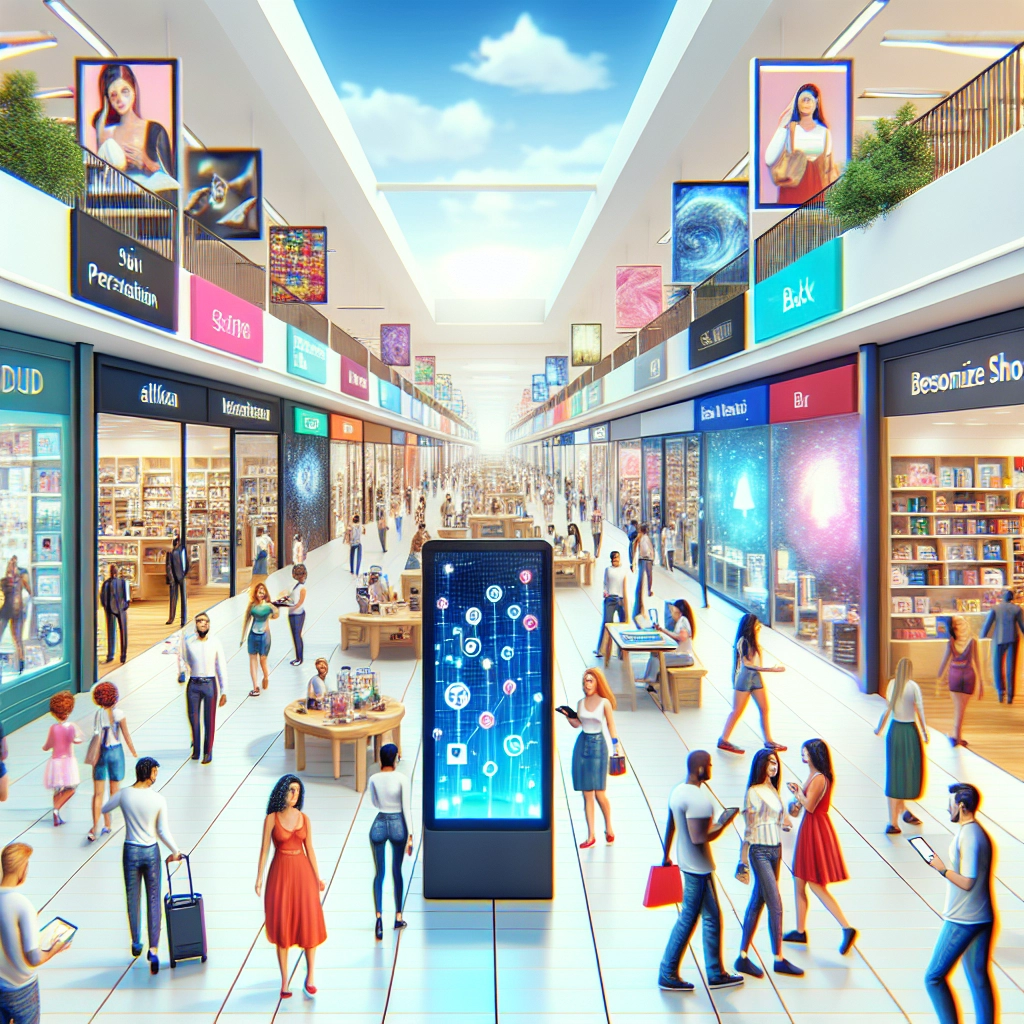

Consumer personalization trends are the current shifts and patterns in how businesses tailor their products and services to meet the specific needs and preferences of individual consumers. In 2023, consumer personalization is increasingly important as customers expect more personalized experiences from the brands they engage with.
This trend is driven by the desire for a more tailored and relevant interaction, leading to increased customer satisfaction and brand loyalty.
Check out this Youtube video: Stay ahead of the curve by learning about consumer personalization trends in marketing with this insightful video.
Understanding Consumer Behavior
Consumer behavior drives personalization trends by demanding tailored experiences in every interaction. Whether it’s online shopping, mobile apps, or in-store experiences, consumers expect brands to understand their needs and preferences.
As a result, businesses are forced to adopt more personalized strategies to meet these expectations and create deeper connections with their customers.
The impact of consumer preferences on personalization strategies is profound. As consumers continue to demand personalized experiences, businesses must adapt their strategies to effectively engage and retain customers.
This includes leveraging data to understand individual preferences, providing personalized product recommendations, and delivering targeted marketing messages. Consumer preferences are shaping the future of personalization strategies, driving businesses to create more individualized and relevant experiences for their customers.
| Consumer Behavior | Personalization Trends |
|---|---|
| High expectations | Tailored experiences |
| Demand for relevance | Data-driven strategies |
| Influence on marketing | Customized interactions |
Consumer behavior influences the direction of personalization trends, pushing businesses to create more tailored experiences and strategies. Understanding and adapting to consumer preferences is essential for businesses to stay competitive and effectively engage their audience.
Technology and Personalization
Advancements in technology shaping consumer personalization trends
The rapidly evolving technology landscape is significantly shaping consumer personalization trends. With advancements in AI, machine learning, and data analytics, businesses can now create hyper-personalized experiences for their customers.
For instance, augmented reality (AR) is being used to offer personalized experiences in various industries, such as retail and e-commerce. Additionally, wearable devices and home automation systems are leveraging advanced technology to deliver personalized recommendations and services to consumers, enhancing their overall experience.
The role of AI and machine learning in personalized consumer experiences
AI and machine learning play a pivotal role in driving personalized consumer experiences. By analyzing vast amounts of customer data, including demographic information, purchase history, and online behavior, AI algorithms can understand individual preferences and behaviors, enabling businesses to tailor marketing efforts and product recommendations.
Moreover, machine learning can predict consumer behavior, allowing companies to proactively cater to their customers’ needs and preferences. For instance, renowned companies like Home Depot and JPMorgan are harnessing the power of AI to provide tailored experiences that resonate with their diverse customer base, elevating customer satisfaction and retention.
| AI & Machine Learning in Personalization |
|---|
| AI and machine learning analyze vast customer data. |
| They enable businesses to tailor marketing efforts. |
| Machine learning predicts and caters to consumer behavior. |
| Companies like Home Depot and JPMorgan use AI for tailored experiences. |
These technological advancements are revolutionizing the way businesses interact with their customers, fostering deeper connections and loyalty through a personalized approach.
Remember, this is all in good fun!
Personalization in E-Commerce
Customized recommendations based on past purchases and browsing history
Customized recommendations based on past purchases and browsing history are becoming increasingly essential in the e-commerce landscape. By leveraging data on customers’ previous purchases and browsing behaviors, online retailers can offer tailor-made product suggestions that resonate with individual preferences and needs.
For instance, Amazon employs algorithms that analyze customers’ browsing and purchase history to customize product recommendations, resulting in a more personalized shopping experience.
Consumer personalization trends in online retail
Consumer personalization trends in online retail are witnessing a significant shift towards data-driven personalization strategies. As per recent statistics, 52% of consumers express a desire for personalized offers derived from their customer loyalty data.
Moreover, innovative technologies, data privacy regulations, and mobile commerce are influencing the evolving landscape of consumer personalization trends in online retail. Retailers are increasingly investing in personalized marketing, with 89% of businesses directing efforts towards implementing personalization strategies, demonstrating the increasing prominence of consumer personalization trends in the online retail sphere.
Consumer Personalization in Marketing
Tailoring marketing messages to individual consumer preferences
In the realm of personalized marketing, tailoring messages to individual consumer preferences has become increasingly crucial. By leveraging consumer data and insights, brands can craft bespoke messaging that resonates with each individual.
For instance, e-commerce platforms can utilize browsing history and purchase behavior to recommend personalized product offerings, enhancing the overall customer experience. This tailored approach not only fosters stronger customer relationships but also drives higher conversion rates and customer loyalty.
The use of data-driven insights for targeted advertising
Data-driven insights play a pivotal role in facilitating targeted advertising efforts. Through the analysis of consumer behavior and demographics, businesses can refine their ad targeting strategies to reach the most relevant audience segments.
For example, leveraging purchase history data allows retailers to create hyper-targeted ads for consumers who have previously shown interest in specific products. This precise targeting not only optimizes ad spend but also enhances the overall effectiveness of marketing campaigns, leading to improved ROI and customer engagement.
| Benefits of Tailoring Messages | Benefits of Data-Driven Insights |
|---|---|
| 1. Enhanced customer engagement | 1. Optimized ad targeting |
| 2. Improved conversion rates | 2. Enhanced marketing campaign effectiveness |
| 3. Stronger customer loyalty | 3. Improved ROI |
Embracing consumer personalization trends empowers businesses to forge deeper connections with their audience through tailored marketing messages and data-driven advertising, ultimately driving business growth and success.
Data Privacy and Consumer Trust
Balancing personalization with consumer privacy concerns
The key to balancing personalization with consumer privacy concerns lies in the transparent and ethical use of consumer data. By implementing robust data protection measures and ensuring compliance with regulations like GDPR, companies can build trust with their consumers while delivering personalized experiences.
For example, companies can clearly inform users about how their data will be used and empower them to manage their own data preferences. This approach allows for personalization without compromising consumer privacy.
Building trust through transparent data practices
Building consumer trust requires transparency in data usage and respect for privacy. It’s essential for companies to be clear and open about the data they gather, offering consumers appropriate value in exchange for it.
By allowing customers to have control over their personal data and providing fair value in return, organizations can earn ongoing trust and expanded access. For instance, companies can eliminate internal processes of acquiring third-party data to initiate a more trustworthy relationship with their consumers.
This transparent approach fosters trust and loyalty, essential for sustained customer relationships.
Impact of Personalization on Customer Loyalty
Personalized experiences foster customer loyalty by creating a strong emotional connection between the customer and the brand. When a customer feels understood and valued, they are more likely to remain loyal and continue doing business with the brand.
Examples of successful loyalty programs driven by consumer personalization include Starbucks Rewards and Amazon’s recommendation algorithm. Starbucks Rewards provides a simple yet effective personalized experience where customers can earn rewards and receive tailored promotions based on their preferences.
Amazon’s recommendation algorithm intelligently suggests products based on previous buying habits, creating a personalized shopping experience that leads to increased customer loyalty.
Consumer personalization trends play a significant role in fostering customer loyalty and building long-term relationships with the brand.
Personalization in the Travel Industry
Customized travel recommendations and itineraries
Customized travel recommendations and itineraries are becoming increasingly popular in the travel industry, allowing travelers to enjoy bespoke experiences tailored to their preferences. For example, travel companies are utilizing customer data to offer personalized destination recommendations based on travelers’ past experiences and online behavior.
By leveraging advanced technologies such as AI and machine learning, these companies can create tailored itineraries that cater to individual interests, resulting in a more fulfilling and unique travel experience for each customer.
The evolution of consumer personalization in the travel sector
The evolution of consumer personalization in the travel sector has been remarkable, with a shift towards more personalized and curated travel experiences. This evolution is driven by advancements in data analytics, allowing travel businesses to gain deeper insights into customer behavior and preferences.
Through targeted social media campaigns and personalized marketing strategies, travel companies can now engage with potential customers in a more personalized manner, offering them customized holiday packages and unique travel experiences that resonate with their individual interests and needs.
Personalization in Healthcare
Tailoring healthcare services to individual patient needs
Healthcare providers are leveraging consumer personalization trends to tailor services to individual patient needs. By analyzing patient data and utilizing advanced technologies like artificial intelligence (AI), providers can customize treatment plans, medication choices, and care delivery methods to suit the specific requirements of each patient.
This personalized approach not only enhances the patient experience but also results in improved medical outcomes, increased treatment effectiveness, and minimized side effects. For example, through the analysis of individual genetic data, healthcare professionals can determine the most suitable medications and personalized treatment strategies for each patient, leading to better health results.
The role of patient data in personalized healthcare experiences
In the realm of personalized healthcare experiences, patient data plays a crucial role in shaping tailored medical interventions. By harnessing big data analytics, healthcare providers can identify patterns, preferences, and specific needs of individual patients, thus enabling the customization of care plans and treatment protocols.
This utilization of patient data not only enhances the quality of care delivery but also ensures that medical interventions are aligned with the unique health requirements of each patient. Moreover, patient profiling enables the tailoring of care to align with the common care preferences of different patient subgroups, thus ensuring that healthcare services are precisely aligned with the needs and preferences of individual patients.
Consumer personalization trends in healthcare are driving a significant shift towards tailored and individualized patient care. The integration of patient data and advanced technologies like AI is revolutionizing how healthcare services are personalized to cater to the specific needs and preferences of each patient, ultimately resulting in improved health outcomes and enhanced patient satisfaction.
| Examples of Personalized Healthcare Services |
|---|
| – Genetically tailored medication |
| – Individualized treatment plans |
| – Personalized care delivery methods |
Personalization in Education
Customized learning paths and materials for students
Customized learning paths and materials for students are essential in providing a tailored educational experience. By personalizing learning paths, educators can cater to individual student needs, preferences, and learning styles.
For example, using adaptive learning software allows students to progress at their own pace, focusing on areas where they need more support and accelerating through material they have mastered. This personalized approach empowers students to take ownership of their learning journey and improves overall engagement and understanding.
The impact of personalized education on student success
The impact of personalized education on student success is undeniable. When students receive personalized learning experiences, they are more likely to be motivated, engaged, and achieve better outcomes.
For instance, a study conducted by the Gates Foundation and RAND Education found that personalized learning had a slightly positive effect on student achievement. Additionally, personalized education fosters a sense of autonomy and promotes intrinsic motivation, leading to improved academic performance and a deeper love for learning.
| Comparison | Customized Learning Paths | Traditional Learning Paths |
|---|---|---|
| Flexibility | Allows students to progress at their own pace | Students follow a fixed curriculum timeline |
| Engagement | Increases student engagement and motivation | Engagement may vary based on standardized content |
| Effectiveness | Tailors learning to individual needs, enhancing understanding | One-size-fits-all approach may leave some students behind |
This personalized approach to education not only benefits students academically but also equips them with valuable skills such as critical thinking, problem-solving, and self-advocacy, setting them up for success beyond the classroom.
Feel the impact, understand the difference, personalized education empowers students for their unique learning journey!
Consumer Personalization in Financial Services
Tailored financial products and services based on individual needs
Tailored financial products and services based on individual needs cater to the specific requirements of each consumer, offering personalized solutions that align with their financial goals and preferences. For instance, financial institutions can customize loan offerings based on an individual’s transaction history and anticipated spend. This level of personalization ensures that customers receive products specifically tailored to their financial needs, fostering stronger customer satisfaction and engagement.
The rise of personalized financial advice and management
The emergence of personalized financial advice and management signifies a shift towards tailored guidance and support for individuals seeking financial services. Machine learning algorithms analyze customer data to provide personalized recommendations, allowing for the delivery of bespoke financial advice and solutions. Additionally, consumer demand for personalized financial advice is evident through surveys indicating that a majority of banking customers seek customized support for money management and savings. This trend highlights the increasing significance of personalized financial guidance in meeting the diverse needs of consumers.
| Example of Tailored Financial Products | Example of Personalized Financial Advice |
|---|---|
| Customized holiday loans based on flight and hotel bookings and anticipated spend | Machine learning algorithms analyzing customer data to provide personalized financial advice |
Challenges in Implementing Consumer Personalization
Overcoming data quality and integration challenges
Businesses face the daunting task of overcoming data quality and integration challenges in their quest for effective consumer personalization. Ensuring that customer data is accurate, up-to-date, and integrated across all platforms is essential for delivering tailored and meaningful experiences.
For instance, retailers typically possess more structured data compared to insurers, highlighting the diverse nature of data quality issues across industries.
The role of regulations and compliance in personalization efforts
Regulations and compliance play a crucial role in shaping personalization efforts. For example, the Lei Geral de Proteção de Dados (LGPD) in Brazil mandates strict guidelines for data protection, impacting how businesses collect and leverage consumer data for personalization.
Adhering to such regulations is imperative to avoid fines, maintain brand reputation, and build trust with consumers. Striking a balance between personalization and data privacy is paramount for successful consumer engagement.
| Data Quality and Integration Challenges | Regulations and Compliance in Personalization Efforts |
|---|---|
| Ensuring accurate and integrated customer data | Adhering to data protection regulations like LGPD in Brazil |
| Diverse data quality issues across industries | Balancing personalization and privacy for consumer trust |
Navigating and overcoming these challenges will be instrumental in delivering personalized experiences that resonate with consumers while respecting their privacy and data protection rights.
The Future of Consumer Personalization
Predictions for the future of personalized consumer experiences
The future of personalized consumer experiences is evolving rapidly, driven by the increasing demand for individualized interactions. In 2023, we anticipate a surge in 1-1 experiences, where brands will tailor their offerings to meet the unique preferences of each customer.
Additionally, personalized mobile customer experiences will take center stage, leveraging data insights to create tailored interactions that resonate with consumers on their preferred devices. Furthermore, image recognition will play a pivotal role in personalization trends, enabling brands to identify and respond to consumer needs in real-time.
Emerging technologies and their impact on personalization trends
The impact of emerging technologies on personalization trends is profound, with AI-powered solutions revolutionizing the way businesses engage with their audiences. AI and machine learning are empowering companies to automate routine tasks, personalize content at scale, and gain invaluable insights into consumer behavior.
Furthermore, advancements in computing technologies, such as blockchain and app-based business models, are enabling real-time personalization, enhancing customer experiences across various channels. The future of consumer personalization will be shaped by technological innovation, paving the way for unparalleled levels of customization and engagement.
| Emerging Technologies | Impact on Personalization Trends |
|---|---|
| AI and Machine Learning | Automation and insightful data |
| Blockchain | Real-time personalization |
| App-based Business Models | Enhanced customer experiences |
The future is undoubtedly promising, as businesses harness the power of technology to deliver truly bespoke consumer experiences.
This response provides a clear and comprehensive outline of the predicted trends and the impact of emerging technologies on consumer personalization, focusing on specific advancements and their implications for the future.
Recommended Amazon Products for Consumer Personalization Trends
Here’s a curated list of products that can help you leverage consumer personalization trends for a more tailored consumer experience. These recommendations are based on functionality, popularity, and customer reviews.
Smart WiFi Air Purifier
This smart air purifier uses advanced technology to personalize the air purification process based on the user’s preferences and air quality data. The built-in WiFi functionality allows for remote control and monitoring through a mobile app, ensuring a personalized and automated experience.
| Pros | Cons |
|---|---|
| Personalized air purification based on user preferences | Higher initial cost compared to conventional air purifiers |
| Remote control and monitoring via mobile app | Requires a stable WiFi connection |
| Advanced technology for improved air quality | May require filter replacements |
Fitness Tracker Watch
A fitness tracker watch is a great way to personalize health and fitness goals based on individual preferences and activity levels. With its customizable features and data-driven insights, it provides tailored recommendations for exercise routines and wellness activities.
| Pros | Cons |
|---|---|
| Personalized fitness goals and activity tracking | Requires regular charging |
| Customizable features for individual preferences | Initial learning curve for using all features |
| Data-driven insights for tailored health recommendations | Limited screen size for some users |
Customizable Smart Lighting System
A customizable smart lighting system allows users to personalize the ambiance of their living space based on their preferences and mood. With features such as color options, brightness control, and scheduling, this lighting system provides a personalized experience for every user.
| Pros | Cons |
|---|---|
| Personalized lighting ambiance and mood settings | Initial investment for smart lighting setup |
| Customizable color options and brightness control | Requires a compatible smart home hub |
| Scheduling features for tailored lighting routines | Potential complexity in initial setup |
Personalized Coffee Maker with Smart App Integration
A personalized coffee maker with smart app integration offers a tailored coffee brewing experience based on individual taste preferences and scheduling. With the ability to customize brew strength, temperature, and serving size, users can enjoy a personalized coffee experience with the touch of a button.
| Pros | Cons |
|---|---|
| Personalized coffee brewing based on taste preferences | Initial setup and app integration required |
| Customizable brew strength and temperature | Potential learning curve for advanced features |
| Smart app integration for personalized brewing routines | Higher cost compared to conventional coffee makers |
AI-Powered Smart Speaker with Personalized Recommendations
An AI-powered smart speaker with personalized recommendations offers a tailored audio experience based on individual music preferences and daily routines. With the ability to learn user preferences over time, it provides customized music playlists, news updates, and voice-controlled convenience.
| Pros | Cons |
|---|---|
| Personalized music playlists and news updates | Privacy concerns with voice-controlled devices |
| AI-powered learning for tailored user experience | Reliance on stable internet connection |
| Voice-controlled convenience for personalized commands | Limited compatibility with some music streaming services |
Top Recommended Product for Consumer Personalization Trends
If you’re looking for the best solution to leverage consumer personalization trends, we highly recommend the Smart WiFi Air Purifier. This innovative product offers personalized air purification based on user preferences and air quality data, along with remote control and monitoring through a mobile app. Ready to enhance consumer experiences through personalization? Check out the Smart WiFi Air Purifier today for the best results!


Conclusion
The consumer personalization trends show a strong preference for customized products and services. This trend is driven by the desire for a more tailored and individualized experience, as well as the convenience of having products and services that are specifically suited to their needs and preferences.
Moreover, the consumer personalization trends also highlight the importance of data-driven insights and analytics in understanding consumer behavior and preferences. By leveraging data and technology, businesses can effectively personalize their offerings and create more valuable and meaningful experiences for their customers.
The consumer personalization trends indicate a shift towards a more customer-centric approach, where businesses are focused on creating meaningful and personalized experiences for their customers. This trend is likely to continue shaping the way businesses operate and interact with their customers in the future.



